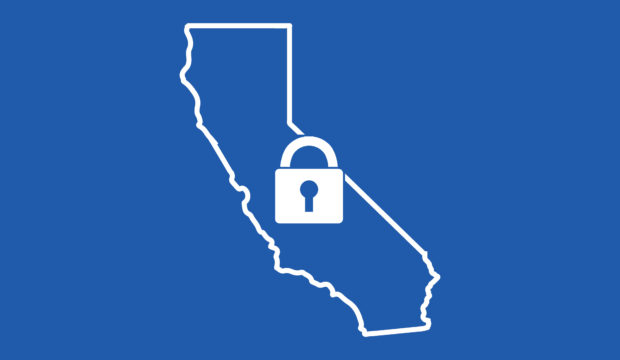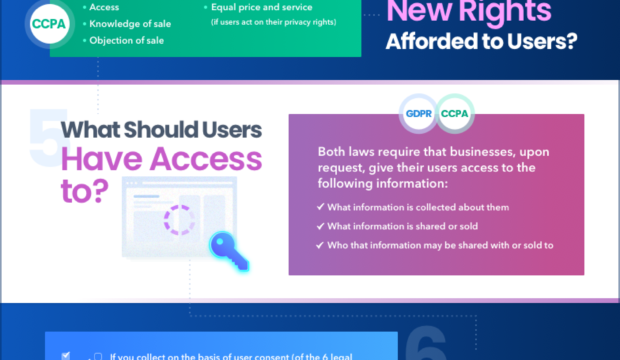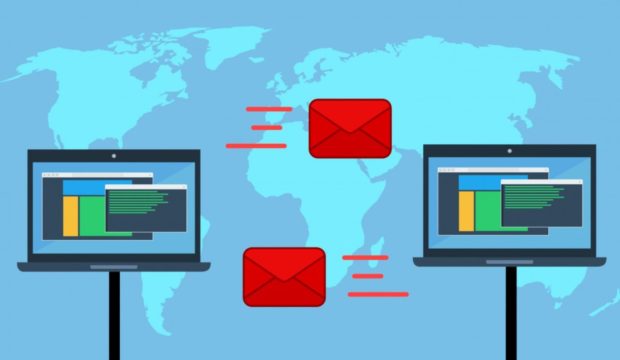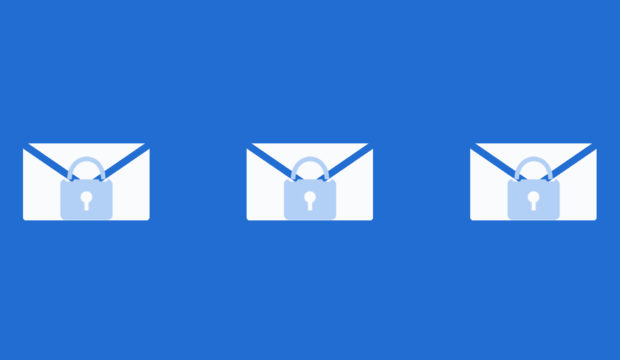CCPA enforcement has begun. Ensure you’re in compliance by following these three quick tips.

CCPA enforcement has begun. Ensure you’re in compliance by following these three quick tips.

CCPA is the first regulation of its kind in the United States, but it has a lot in common with GDPR, the EU’s 2018 data privacy regulation.

When it comes to marketing, there are 6 key things to know about CCPA before it goes into effect in 2020.
Have you thought about how you safeguard your customer data? What about the marketability of your email list? You should. Data privacy regulations are moving into the United States, with California being the first (but certainly not the last) state to take a strong stance around protecting consumer data. Utilizing opt-in advertising for 100% permissioned leads ensure that you have trackable proof of consent for every email in your database. But you also need to make sure that the database itself is secure and that all data transfers use encrypted methods to protect the data in transit. Opt-in advertising can help maintain data privacy every step of the way.
The term “opt-in” comes up a lot in online marketing. Single opt-in and double opt-in are two different methods of consent, most often used in relation to email. And in a way, people “opt-in” to your marketing in a variety of ways, including following you on social media. But when we talk about opt-in advertising, we’re talking about users who are opting in to your email list through an ad shown on a third-party site, typically through a co-registration form where their information has already been pre-populated for an easy opt-in. So while there are many ways to opt-in to marketing messaging, here are three reasons to specifically choose opt-in advertising for your next lead generation campaign.

As a marketer, data protection is probably top of mind most days. It’s clear that privacy regulations are becoming the norm, and for good reason. But without a standard policy, it can be hard to determine what is required to truly maintain data privacy and when this all needs to happen. We’re here to tell you that it’s not as complex as you might fear, but data privacy does matter at every stage of lead generation. Customer or not, it’s your job to safeguard the data of your leads, potential leads and prospects.
Opt-in advertising isn’t exactly a new concept. In many industries it has become so standard that it’s not often mentioned, simply running along in the background, quietly supplying quality leads. Targeting and delivery capabilities have evolved with technology, but opt-in advertising has continued to be the standard in lead generation. And it’s a workhorse that delivers powerful results. But now more than ever it can and should be an integral part of your lead generation strategy. Here are three reasons opt-in advertising matters now more than ever.

It’s a given to most businesses that they need to protect the data of their customers. But what about potential leads and unsubscribed users? You might not think of this data as “yours” to protect yet, but perhaps you should. Because you could be inadvertently making a very big privacy mistake if not. By applying the same data privacy policy to any data you interact with, you’ll ensure a compliant, clean database of leads and customers, as well as unsubscribed users. And that sets you up for a better, more cost-effective method of building your email list as you work to win back unsubscribers.
Data privacy and use is a major concern for both companies and consumers these days. How lead generation data is collected, stored and used is especially important to advertisers who are paying or have paid for targeting that includes both first and third-party data. Data privacy regulations are taking effect across the globe, and tighter restrictions are becoming the norm. Overall, this is a good thing for everyone, but it takes some adjustments as we settle into the “new normal.”
The General Data Protection Regulation, or GDPR, has had a major impact on North American companies, despite being a European Union policy. But California has just passed similar legislation, and more states may follow soon. Marc Benioff has called for a national data privacy law, much like the EU has with GDPR, and we may not be far off. Taking extra steps to ensure you follow proper data privacy policies now will pay off in the long term.
When Facebook unveiled Facebook Lead Ads, it was considered a groundbreaking product for lead generation. Facebook’s depth of knowledge on their users is unprecedented for an ad network, and the wealth of information shared on the platform could be considered a goldmine for leads. But Facebook lead generation never caught on in the way many hoped it would, or assumed it could. High cost per lead was often cited as a major factor, and recent changes have only made it more difficult to generate leads at scale with Facebook Lead Ads. Considering Facebook lead generation for your business? Here are four fast facts you need to know first: